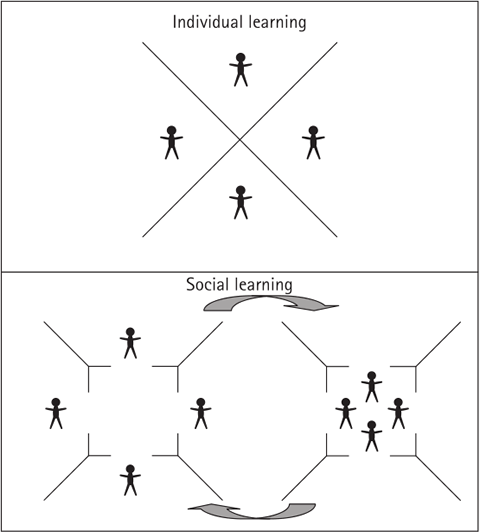Enter your strategy in a tournament, win thousands of Euros
SECOND SOCIAL LEARNING STRATEGIES TOURNAMENT: 25,000 EUR PRIZE MONEY
DSN received the following announcement, which should be of interest to agent-based modelers out there. The first tournament led to a Science paper, not a bad outcome.
We would like to invite you, the members of your research group, and your colleagues to participate in The Second Social Learning Strategies Tournament, which we hope will interest you. The tournament, which has a total of 25,000 euro available as prize money, is now open for entries.
The tournament is a competition designed to establish the most effective means to learn in a complex, variable environment.
In recent years, there has been a lot of interest (spanning several research fields, but especially economics, anthropology, and biology) in the problem of how best to acquire valuable information from others. The first Social Learning Strategies Tournament, inspired by Robert Axelrod’s famous Prisoner’s Dilemma tournaments on the evolution of cooperation, attracted over 100 entries from all around the world, and a paper detailing the results was published in the journal Science in 2010*. The high level of interest convinced us that it would be worthwhile to organise a second tournament in which some of the restricting assumptions of the first could be relaxed, so as to explore a broader range of questions.We have received funding for this from the European Research Council, and a committee of world-leading scientists have helped us to design the tournament game, including Sam Bowles (Santa Fe Institute), Rob Boyd (UCLA), Marc Feldman (Stanford), Magnus Enquist (Stockholm), Kimmo Erikkson (Stockholm) and Richard McElreath (UC Davis).
Entrants will be required to submit behavioural strategies detailing how to respond to the problem of resource gain in a complex, variable environment through combinations of individual and social learning.
Three extensions to the first tournament game will (i) explore the effects of learners being able to select from whom to learn, (ii) allow agents to refine existing behavior cumulatively, and (iii) place the action in a spatially structured population with multiple demes. A total of 25,000 euro prize money is available, divided into three 5,000 euro prizes for the best strategy under any single extension, and a 10,000 euro prize for the best strategy under all three extensions.
The competition is now open for entries, with a closing date of
February 28 2012. More information can be found at:
http://lalandlab.st-andrews.ac.uk/tournament2/
We would like to encourage you, the members of your laboratories, and your colleagues and collaborators, to participate in this competition.Please do forward this message to anyone you think might be interested. We would also be grateful if you would print out and post the attached flier on your notice boards, and forward it to anyone you think might be interested.
We hope that this tournament will increase understanding of, and stimulate research on, the evolution of learning, as Axelrod’s tournament did for the evolution of cooperation.
*Rendell et al. (2010) Why copy others? Insights from the Social Learning Strategies Tournament. Science 328: 208-213
Image credit: Goldstein, D. G. (2009). Heuristics. In P. Hedström & P. Bearman (Eds.), The Oxford Handbook of Analytical Sociology. (pp. 140-164). New York: Oxford University Press. [Download]



Good articles and information. I really enjoyed your blog. Keep up the good work.
November 29, 2011 @ 3:26 am